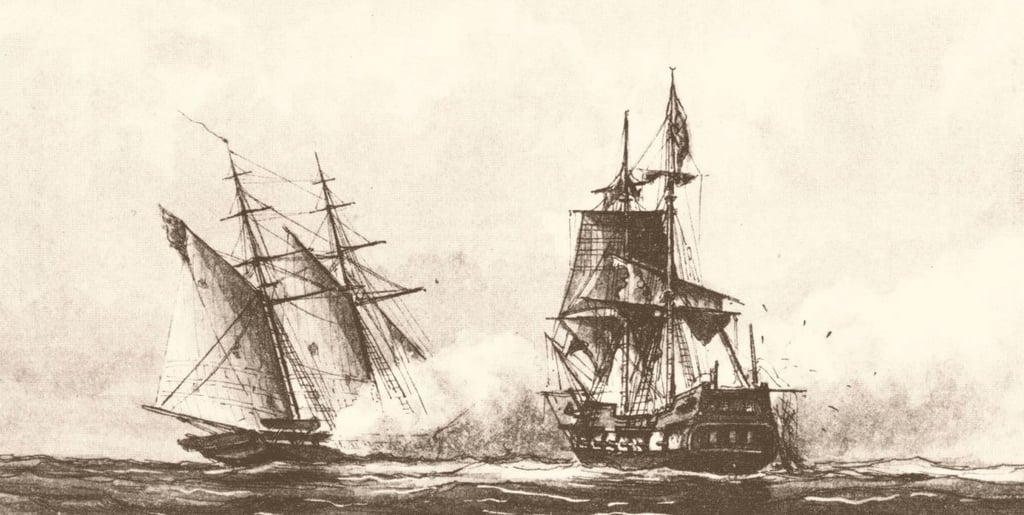Why The US Navy Was Formed
Barbary pirates were attacking our ships.
Swamp Fox
4/21/20253 min read


The Battle of Derna
The United States Navy, today one of the most powerful military forces in the world, had a humble and urgent beginning. Its formation wasn’t merely a response to external threats but a necessity born from the harrowing attacks on American merchant ships in the early 19th century. These attacks were carried out by the Barbary States of North Africa—specifically the Barbary Pirates—who engaged in the enslavement of white people and the plundering of merchant vessels. These actions played a critical role in the creation of a naval force dedicated to protecting American interests and securing national sovereignty.
The Barbary States: A Threat to Maritime Trade
In the late 18th century, the Barbary States—consisting of Algiers, Tripoli, Tunis, and Morocco—were small North African kingdoms along the Mediterranean coastline. These states had long practiced piracy, targeting merchant ships traveling through the Mediterranean and beyond. For centuries, they operated with relative impunity, as European powers and other maritime nations negotiated “tribute” payments in exchange for safe passage of their ships.
However, after the American Revolution, American merchant ships, which had once sailed under British protection, were left vulnerable. The newly independent United States had no navy to defend its vessels or citizens overseas.
The Barbary Pirates and the Enslavement of Americans
The Barbary Pirates were notorious for their aggressive tactics. One of their most horrifying practices was the capture and enslavement of European civilians. Pirates captured European sailors, merchants, and travelers—selling them into slavery or using them for forced labor.
When American ships became targets, the same fate met many U.S. citizens. In the early 19th century, American merchant vessels were regularly attacked, their crews taken prisoner, and held for ransom or sold into slavery. This was more than an economic issue—it was a national disgrace that ignited widespread outrage.
Jefferson’s Stand: Naval Power Over Tribute
President Thomas Jefferson recognized that paying off pirates was not a sustainable or honorable strategy. By the early 1800s, the United States had paid large sums in tribute, but the attacks only increased.
In 1801, when Tripoli declared war on the United States after Jefferson refused further payments, the U.S. took decisive action. Jefferson’s administration called for the creation of a permanent naval force to confront the pirates directly. This marked the real beginning of the U.S. Navy as a fighting force capable of defending American sovereignty.
The First Barbary War: America’s First Naval Victory
From 1801 to 1805, the First Barbary War unfolded across the Mediterranean. U.S. naval forces launched a series of successful operations, including a naval blockade of Tripoli and a daring ground assault on the city of Derna.
It was in Derna that U.S. Marines, led by William Eaton and joined by a small force of Arab allies, crossed the harsh North African desert and stormed the city. After fierce fighting, the Marines took Derna and raised the American flag in victory—the first time in history the U.S. flag was planted on foreign soil during combat.
This moment, immortalized in the Marine Corps Hymn (“to the shores of Tripoli”), was more than just a military success—it was a declaration to the world that America would defend its people, its honor, and its freedom by force if necessary.
The war concluded in 1805 with a treaty, though piracy continued sporadically. Still, the United States had demonstrated its will and capacity to defend its people and commerce with force.
The Creation of a Lasting Naval Force
The success of the First Barbary War underscored the importance of a standing navy. No longer would America rely on tribute or foreign diplomacy to guarantee safe passage. The Navy expanded rapidly in the following years, becoming a cornerstone of American power and security.
The Barbary pirates’ aggression had led to a turning point: the United States would never again remain defenseless at sea.
The Modern Parallel: Houthi Attacks on Civilian Shipping
More than two centuries later, the threat to maritime commerce has returned—this time from the Red Sea. Iranian-backed Houthi rebels in Yemen have begun targeting civilian merchant vessels, using drones and missiles to disrupt trade routes and spread terror. These actions, like those of the Barbary pirates, are an assault on free navigation and international law. American ships, and those of allied nations, are again in the crosshairs of rogue actors seeking to project power through violence and intimidation.
Conclusion: From Tripoli to Today
The creation of the U.S. Navy was a direct response to the enslavement of Americans and the piracy that targeted our trade and honor. The Barbary Wars were America’s first real test of force on the global stage, and the result was a permanent military institution that helped define the nation’s role in the world. Today, as history echoes in the Red Sea, the lesson remains: weakness invites aggression, but strength ensures peace.
The U.S. Navy will act swiftly and decisively against any threat to global maritime security.
Just as it rose in defiance of Tripoli, the Navy now stands ready to defend the free flow of commerce and the lives of Americans against modern-day piracy. Those who threaten our ships should take note: we answered with fire then, and we will again.
“Freedom2A is a citizen-led initiative to restore accountability and defend constitutional rights.”
© 2025. All rights reserved.
